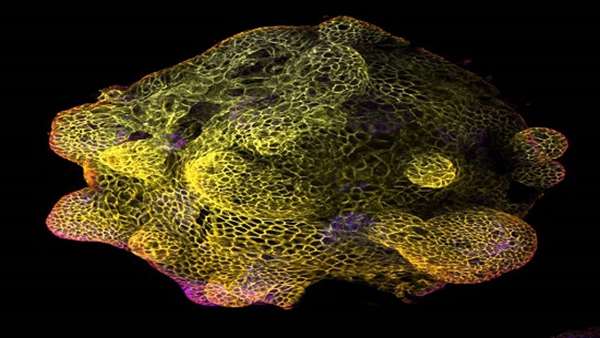Use of CRISPR-modified human stem cell organoids to study the origin of mutational signatures in cancer
Human cancer genomes harbor cryptic mutational signatures that represent the cumulative effects of DNA damage and defects in DNA repair processes. Knowledge of how specific signatures originate could have a major impact on cancer diagnosis and prevention
Human cancer genomes harbor cryptic mutational signatures that represent the cumulative effects of DNA damage and defects in DNA repair processes. Knowledge of how specific signatures originate could have a major impact on cancer diagnosis and prevention. One approach to address this question is to reproduce the signatures in experimental systems by genetic engineering and then match the signatures to those found in naturally occurring cancers. Drost et al. used CRISPR-Cas9 to delete certain DNA repair enzymes from human colon organoids. In a proof-of-concept study, they show that deficiency in base excision repair is responsible for a mutational signature previously identified in cancer genome sequencing projects.
Mutational processes underlie cancer initiation and progression. Signatures of these processes in cancer genomes may explain cancer etiology and could hold diagnostic and prognostic value. We developed a strategy that can be used to explore the origin of cancer-associated mutational signatures. We used CRISPR-Cas9 technology to delete key DNA repair genes in human colon organoids, followed by delayed subcloning and whole-genome sequencing. We found that mutation accumulation in organoids deficient in the mismatch repair gene MLH1 is driven by replication errors and accurately models the mutation profiles observed in mismatch repair–deficient colorectal cancers. Application of this strategy to the cancer predisposition gene NTHL1, which encodes a base excision repair protein, revealed a mutational footprint (signature 30) previously observed in a breast cancer cohort. We show that signature 30 can arise from germline NTHL1 mutations.
http://science.sciencemag.org/content/358/6360/234





ارسال به دوستان